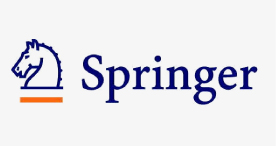Springer Journal of Internet Services and Applications: Thematic Series on the Internet of Things
Extended deadline: August 31, 2015
Download the Call for Papers
With more and more devices autonomously connected to the Internet, simply named Things, the number of Things has already largely outpaced the number of connected users. This reality has led to the Internet of Things (IoT) being considered a major constituent of the current and future Internet. Things, typically embedding one or more sensors and actuators, provide a direct link between the physical and the virtual worlds; hence, the term cyber-physical systems, also used to designate the field.
While potentially any physical object, stationary or mobile, can be connected, the power of the paradigm is well demonstrated by the recent massive adoption of multi-sensor-equipped personal devices, like smartphones, tablets and new wearable devices. Besides their large-scale, free-of-cost deployment and location coverage, these devices accompany their users literally in each moment of their everyday schedule, which makes their sensing data highly contextually significant. This perspective is even driven to its extreme with connected users sometimes considered as yet another category of sensors, often called social sensors. Such sensors strongly linked to users can be leveraged in combination with other Things deployed in a planned way. This is, e.g., the case in the context of smart cities, with numerous applications integrating connected infrastructures, vehicles and people.
Building on existing advances in distributed systems, networking, wireless sensor networks, ubiquitous computing and service oriented computing, the IoT has introduced new challenges which stem from: (i) the openness, heterogeneity, scale, resource constraints and dynamics of the target computing environment, combined with (ii) the continuity, real-timeliness, location-dependency and uncertainty of the physical world phenomena and their sensing.
This JISA Thematic Series aims at providing innovative contributions to the research and development of the IoT, regarding the design, analysis, implementation and evaluation of models, algorithms, protocols, software development platforms and tools, computing and networking architectures, as well as applications for the IoT.
Topics include, but are not limited to the following:
- Networks of Things and networking architectures for the IoT
- Middleware and middleware protocols for the IoT
- Cloud architectures for the IoT
- Wearable computing architectures in the IoT
- Interoperability across IoT computing and networking platforms
- Application programming platforms and tools for the IoT
- Data streaming protocols for the IoT
- IoT data and data stream processing, storage, and fusion
- Semantic technologies for IoT data
- IoT data mining and data analytics
- Task mapping and deployment in networks of Things
- Computation and data offloading to the Cloud vs. in-network data processing and storage
- Overcoming the ultra large scale of the IoT
- Control and data coordination inside Thing populations
- Runtime emergent communities of Things
- Mobile physical and social crowd-sensing
- Efficient management of resource constraints and volatility of Things
- Quality of service assurance in the IoT
- Security, privacy and trust in accessing IoT data
- Dependability assurance in the IoT
- IoT test beds
- IoT applications and real-life deployments
JISA is an open access journal; recent papers can be downloaded from jisajournal.com/content.
Submission schedule
Manuscript due: August 31, 2015 (extended deadline)
First response from reviewers: October 31, 2015
Submission instructions
Before submission, authors should carefully read the Instructions for Authors, which are located at jisajournal.com. Manuscripts are typically 14 two-column pages in length, but longer papers are also accepted. Prospective authors should submit an electronic copy of their complete manuscript through the SpringerOpen submission system at jisajournal.com/manuscript according to the submission schedule. They should select the correct Thematic Series in the “sections” box upon submitting. If you have any difficulty in paying the author processing charges (APC), please request a waiver from the editors.
Guest editors
- Nikolaos Georgantas, Inria, France
- Bhaskar Krishnamachari, University of Southern California, USA
- Animesh Pathak, Inria, France
- Nalini Venkatasubramanian, University of California, Irvine, USA
Please address queries related to this call to nikolaos.georgantas@inria.fr.


